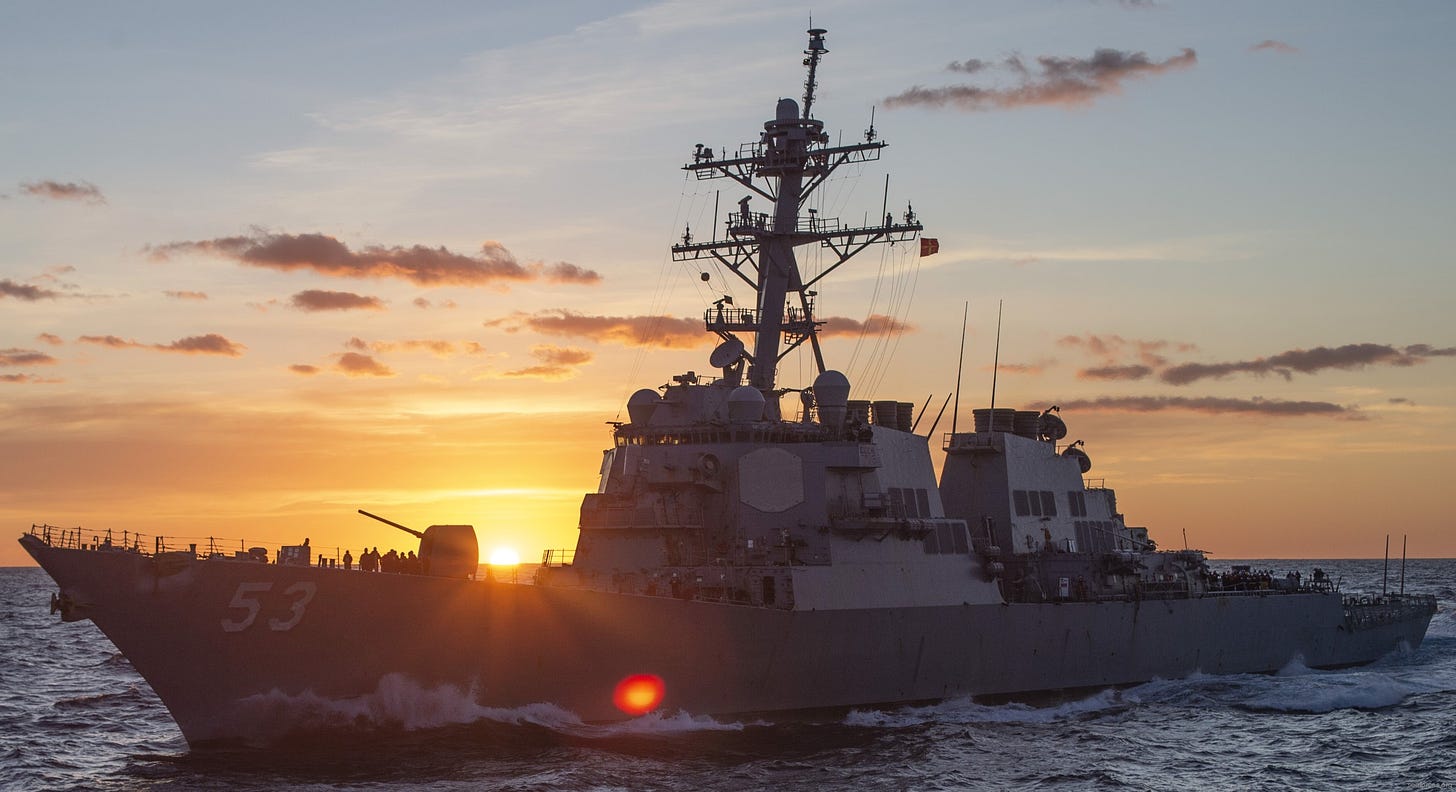Gunner’s Mate 2nd Class Don Borski was the kind of man whose myth preceded him, and in the tightly wound corridors of the USS John Paul Jones (DDG 53), myth meant everything. We all knew him as Donnie Guns, the last in a long line of war-scarred Borskis who had kept the Navy's gunnery tradition alive since the days when ironclads were the terror of the seas. The stories about him were not just legends—they were bloodlines, passed down in the salt and grit of the Navy, solidified in the smoke from Marlboro reds and the grease of machine guns.
When I first met Donnie Guns, it wasn’t his mustache —more reminiscent of a chewed-up, dirty broom — or his constant need for a shave that struck me. It was the way he carried himself. There was a sneer in his walk, a swagger that could take down an entire line of green, terrified junior officers. The guy oozed nonchalance, but it wasn’t a put-on. He was born into this life, raised in the shadow of Naval Weapons Station Seal Beach, California, a sprawling wasteland of concrete and barbed wire. His destiny had been written on the blueprints of military industrialism long before he ever set foot on a destroyer.
Hell, there was even an All Hands feature about him — well, about his family, really. Donnie was the latest chapter in a saga of cannon-blasting Borskis that stretched back to the Civil War. His father, his uncles, his grandfather — all of them had served as gunner’s mates. His older sister even got in on the act. The only thing that seemed to separate Donnie from his ancestors was the fact that his name would be attached to this floating fortress of firepower, the John Paul Jones, as we embarked on what we hoped would be a routine deployment to the Persian Gulf in 2001. No one could have predicted the wild months ahead. But before the chaos of the post-9/11 world, we were just another crew, looking for something, anything, to kill the boredom.
And then came that overturned boat. A godsend in the form of splintered wood and bullet holes, drifting aimlessly in the South China Sea. Pirates, most likely. Or at least, that’s what we told ourselves. We didn’t care. We had guns, ammo, and orders to make the thing disappear.
The skipper gave the green light, and Donnie was ready. Always ready. His .50 caliber machine gun wasn’t just a tool — it was an extension of him, an object of reverence. You could see it in the way he handled the thing. And when Captain Carney, with that knowing grin, gave the order — “Batteries release” — you could see the sparkle in Donnie’s eyes. That was it. The show was on.
KA-CHUNK! The sound of the bolt slamming home was like a door slamming shut on whatever sanity Donnie still had left. He squeezed the trigger, and the gun belched out rounds in a furious, rhythmic WHOMMP WHOMMP WHOMMP. The boat didn’t stand a chance. It shattered under the barrage, splinters raining into the sea like confetti at some grotesque parade.
But what truly cemented Donnie Guns’ legacy wasn’t the gunfire. It was the song — the crazed, fervent rendition of the Battle Hymn of the Republic that bellowed from his smoke-choked lungs. “MINE EYES HAVE SEEN THE GLORY!” he screeched, off-key and euphoric, timing each verse with the brutal cadence of the gun. WHOMMP WHOMMP WHOMMP. “HE IS TRAMPLING OUT THE VINTAGE…” WHOMMP. His voice rose higher and higher, carried on the waves of destruction that he was unleashing on this helpless, splintered wreck.
It was pure, unhinged ecstasy. But the real punchline? It wasn’t the wreckage or the song. It was when Donnie finally stopped, when the barrels were too hot to touch, and the crowd that had gathered around him fell silent. Donnie Guns, sweaty and triumphant, turned around. And there it was. A towering erection. His uniform strained against it, and he wasn’t embarrassed. Not even a little bit. No shame. No guilt. Just pride. Donnie Guns had become Donnie Hard On at that moment, and he owned it.
After that, we couldn’t stop ribbing him, of course. But there was a newfound respect, a grudging acknowledgment that Donnie wasn’t just a man playing at being a gunner — he was the gunner. The last in his line, perhaps, but also the most legendary. He had taken aim, fired, and left nothing behind but debris, a few verses of a war hymn, and the undeniable proof of his passion for the job.
You never really forget a guy like that. How could you? The memory of that day, of Donnie’s wild-eyed intensity and that ludicrous, defiant grin, will always be etched into the bulkheads of my mind. And for those of us lucky enough to have been there, to have seen him in his element — well, we’ll never forget the Battle Hymn of the Republic as long as we live. Not after that day.




Glorious.
I loved meeting people like that.